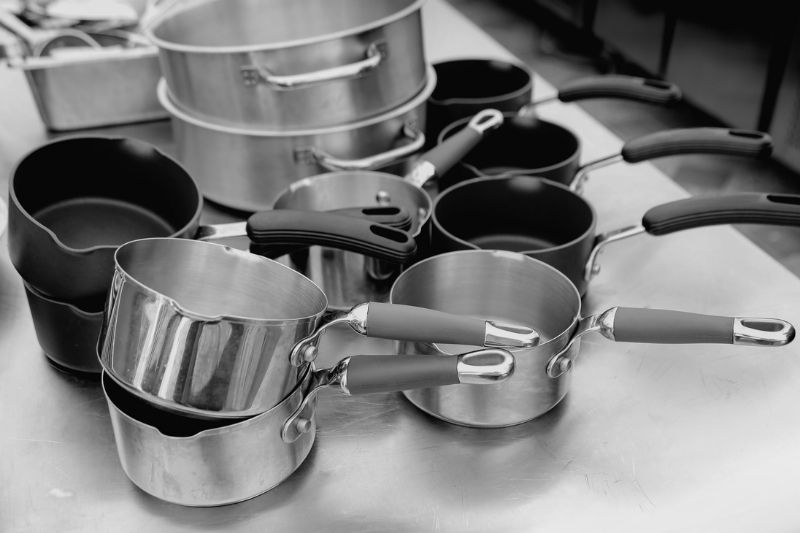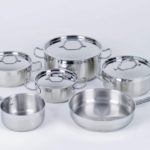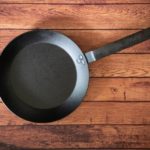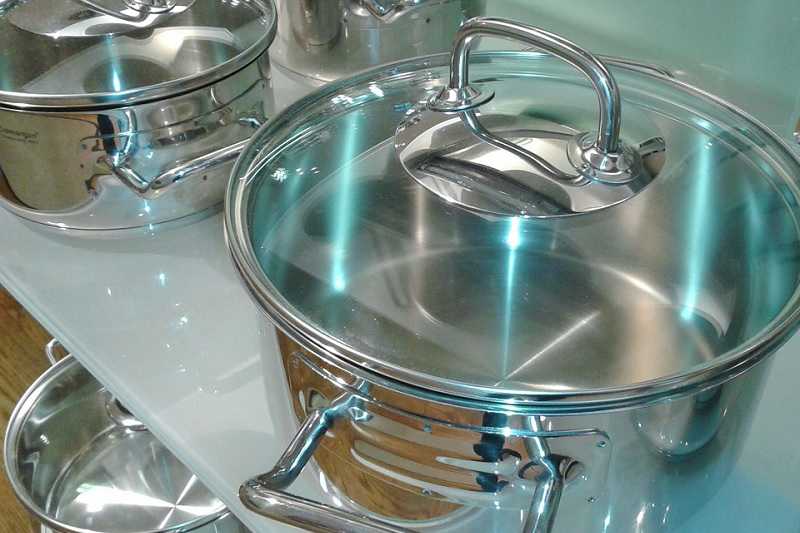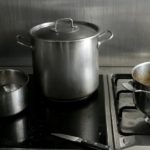When it comes to purchasing cookware, there are many different options to choose from. One of the more popular options is stainless steel pots and pans.
But as there are concerns over the leaching of chemicals and metals into food, is stainless steel a safe non-toxic option for your kitchen?
In many cases, the answer is yes! But not all stainless steel pans are the same.
Their risk to human health depends on the quality of the pan, what metals they are made of, and whether they have a non-stick coating.
What Are Stainless Steel Pans Made of?
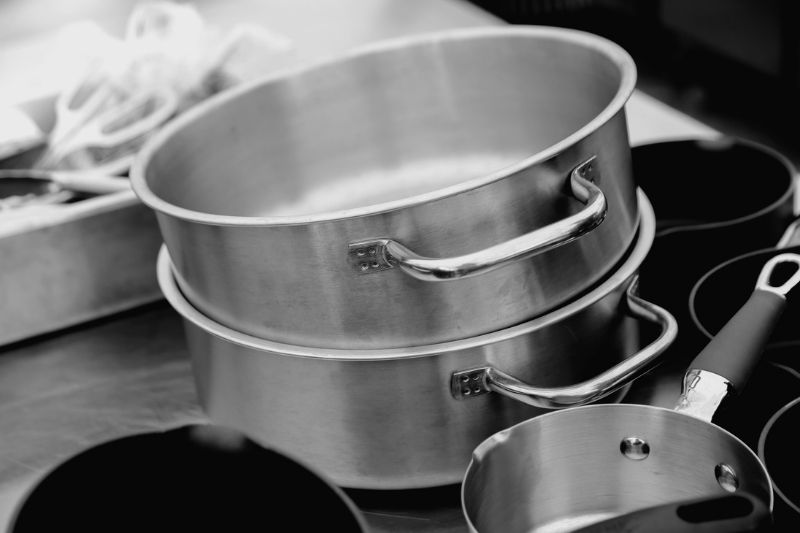
The safety of stainless steel cookware depends on precisely what the pans are made of. Stainless steel is a metal alloy, meaning it is made from a combination of metals. Namely, these metals are iron, carbon, and chromium.
Some also have an inner core or metal-clad bottom that contains aluminium and copper for enhanced heat conductivity.
All stainless steel pans must be food grade, and contain certain amounts of chromium. The chromium is essential for preventing corrosion. Nickel is also included in many food-grade stainless steel pans.
The amount of chromium and nickel found in the metal alloy is then used to separate the metal into different grades. Common stainless steel grades used in cookware are as follows, with 304 being the most common for kitchen pots and pans:
- 18/10 (304 stainless steel): Contains 18% chromium and 10% nickel
- 18/8 (304 stainless steel): Contains 18% chromium and 8% nickel
- 18/0 (430 stainless steel): Contains 18% chromium and 0% nickel
Stainless Steel Cookware Safety
Some pans release metal ions and chemicals into foods during heating, which carry negative health consequences when ingested.
However, stainless steel cookware is generally safe and non-toxic. The main metal in the pan is iron which is not toxic if ingested.
In fact, iron is an important component of red blood cells and a healthy intake of iron is a good thing.
With that being said, there are a few exceptions to this rule. Both allergies to nickel and chromium can make these pans unsafe for some people, while non-stick pans contain potentially dangerous chemicals.
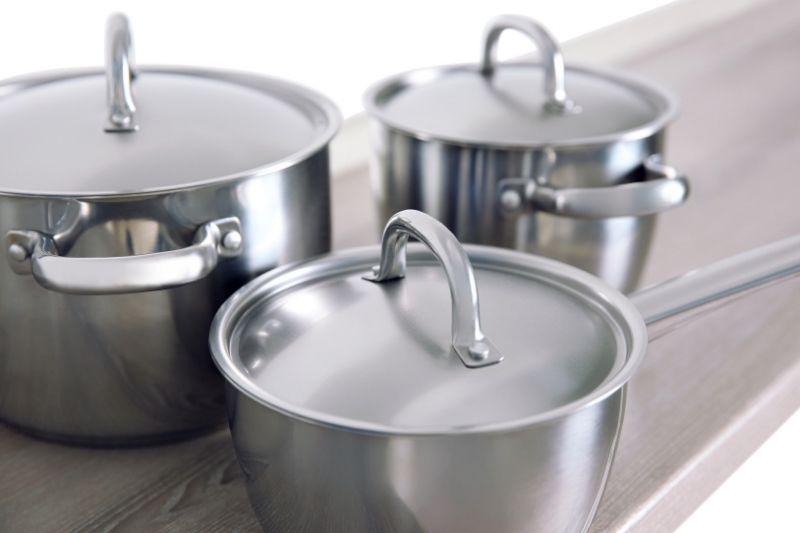
Leaching of nickel and chromium
As mentioned, most stainless steel cookware contains at least 18% chromium and 8-10% nickel. One study found that chromium and nickel leach from stainless steel pans.
Thankfully, this does not pose a major risk to human health as these metal ions are not toxic when ingested in small quantities.
However, exposure is linked to the prevalence of allergic contact dermatitis (ACD). Therefore, eating food cooked in stainless steel pans can exacerbate the condition.
If you know you are allergic to nickel and chromium, it is best to opt for a different type of cookware that doesn’t contain these metals.
Good alternatives include ceramic cookware, cast iron pans, or carbon steel pans. Avoid aluminium pans and copper pans though. Both these metals leach into food when cooking and can have adverse health effects.
Non-stick stainless steel pans
Non-stick stainless steel pans also carry health complications. Unlike clad iron pans, stainless steel pans do not have natural non-stick properties.
Therefore, any non-stick stainless steel pans you come across have an additional chemical coating to give them these non-stick qualities. Just like metals can leach into what you are cooking, chemical coatings can also make their way into your food.
One of the most well-known chemicals used in the production of non-stick pans is PFOA. This is what was used in Teflon coating until a lawsuit was launched against them cookware manufacturer DuPont in 2004 on the basis that the chemical is toxic and poses a risk to human health. Today, all Teflon pots and pans are PFOA-free due to the toxic effects of this compound.
However, older non-stick stainless steel pans could still contain his chemical. Moreover, many different chemicals are used to produce non-stick surfaces.
These could carry potential health complications. If safety is a top concern, use non-coated stainless steel pans or pans made from natural non-stick materials such as cast iron.

Hannah is a freelance content writer and self-proclaimed foodie. When Hannah isn’t sitting tapping at her laptop, you’ll probably find her in the kitchen. As an ex-chalet host, she’s used to cooking four-course meals for 10+ people and loves feeding friends and family whenever possible.

